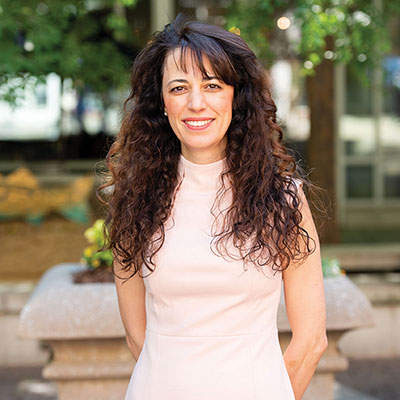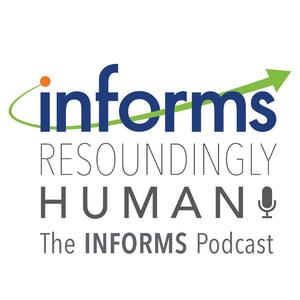Published: July 30, 2020

When I last spoke with 2020 INFORMS President Pinar Keskinocak, it was the beginning of the year, and the worldwide impact of the COVID-19 pandemic had not yet been realized. It has only been a few months since then, but it feels like a lifetime. And we are only halfway through the year! Needless to say, 2020 has thrown some unexpected challenges to all of us, in how we live and work. I am once again joined by Pinar to discuss the year so far and the role that O.R. and analytics has played in helping the world address many of these challenges, as well as those still to come.
The COVID-19 pandemic highlighted once again the importance of data-driven and informed decision-making versus decisions made based on intuition and gut feelings when there are so many lives at stake. In particular, it highlighted the importance of fully analyzing and quantifying the potential impact of decisions under dynamically changing conditions and uncertainty.
Interviewed this episode:

Pinar Keskinocak
2020 INFORMS President
Pinar Keskinocak is the William W. George Chair and Professor in the H. Milton Stewart School of Industrial and Systems Engineering at Georgia Tech. She is also co-founder and director of the Center for Health and Humanitarian Systems. Previously, she served as the College of Engineering ADVANCE Professor and as interim associate dean for faculty development and scholarship. Prior to joining Georgia Tech, she worked at IBM T.J. Watson Research Center. She received her Ph.D. in Operations Research from Carnegie Mellon University, and her M.S. and B.S. in Industrial Engineering from Bilkent University.
Dr. Keskinocak’s research focuses on the applications of operations research and management science with societal impact, particularly health and humanitarian applications, supply chain management, and logistics/transportation. Her recent work has addressed infectious disease modeling (including Covid-19, malaria, Guinea worm, pandemic flu), evaluating intervention strategies, and resource allocation; catch-up scheduling for vaccinations; hospital operations management; disaster preparedness and response (e.g., prepositioning inventory); debris management; centralized and decentralized price and lead time decisions. She has worked on projects with companies, governmental and non-governmental organizations, and healthcare providers, including American Red Cross, CARE, Carter Center, CDC, Children’s Healthcare of Atlanta, Emory University, and Intel Corporation.
She is an INFORMS Fellow and currently serves as the president of INFORMS. Previously she served as the Secretary of INFORMS, a department editor for Operations Research (Policy Modeling and Public Sector area), associate editor for Manufacturing & Service Operations Management, and INFORMS Vice President of Membership and Professional Recognition. She is the co-founder and past-president of INFORMS Section on Public Programs, Service, and Needs, and the president of the INFORMS Health Applications Society.
Episode Transcript
Contact us to request transcript.
Want to learn more? Check out the additional resources and links listed below for more information about what was discussed in the episode.
$25 for 25 Years of INFORMS: Student scholarship fundraiser
Evaluating Scenarios for School Reopening under COVID-19
Homebound by COVID-19: The Benefits and Consequences of Non-Pharmaceutical Intervention Strategies
The Impact of Social Distancing on COVID-19 Spread: State of Georgia Case Study
